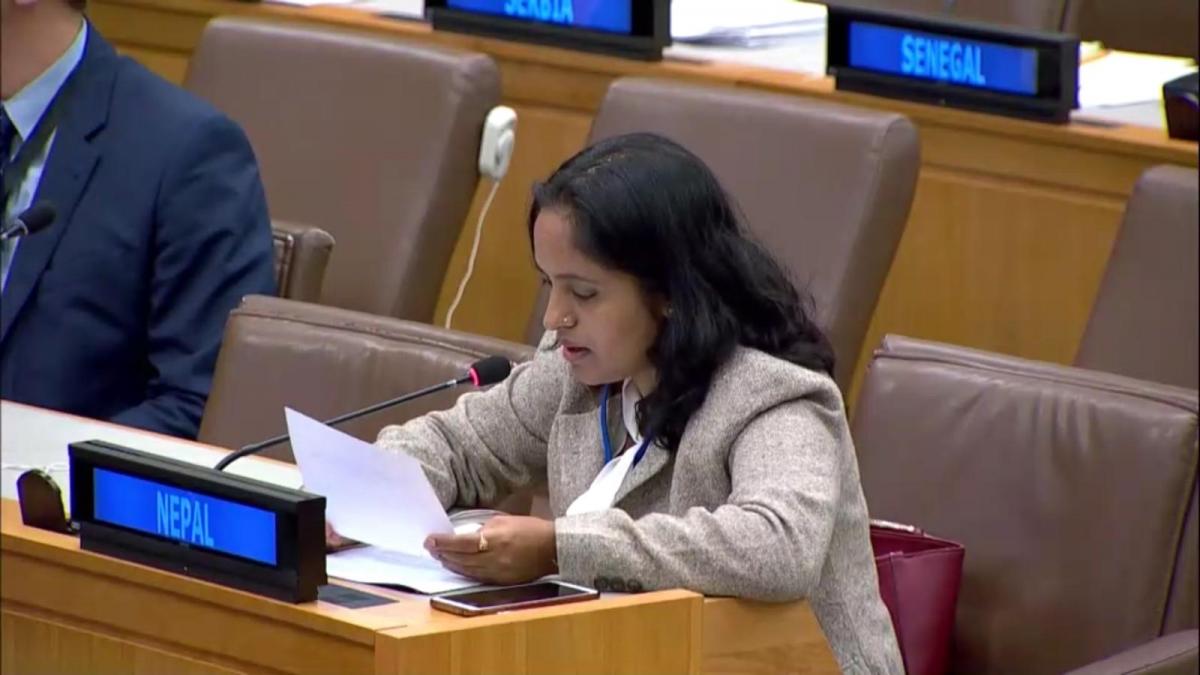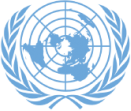
Mr. Chair,
Nepal welcomes Secretary General’s reports under this agenda item and makes note of the recommendations made therein.
While aligning with the statement made by the State of Palestine on behalf of G77 and China, I wish to make the following points in my national capacity.
Mr. Chair,
The United Nations Convention on the Rights of the Child (UNCRC) is one of the most comprehensive human rights agreements that sets out civil, social, economic, political, and cultural rights of every child, regardless of their race, religion and abilities.
Nepal as a party to this Convention has incorporated its core principles of non-discrimination, the best interests of the child, the right to life, survival and development, and respect for the views of the child in our laws as well as in our plans and policies.
The Constitution of Nepal 2015 guarantees every child with the fundamental rights. The Government promulgated Children’s Act in 2018 which is guided by the rights-based approach and formulated in line with the Convention. Similarly, Nepal’s development plans and policies envision a society that ensures all rights of children.
Mr. Chair,
The Government of Nepal is committed to invest in children’s health, education, and protect them from violence and discrimination.
Our plans laid emphasis on ensuring good health of newborns and mothers.
- The Government has been effectively implementing National Immunization Programme with high priority, providing equitable services to remote regions, economically backwards, and marginal communities for more than four decades.
- This has benefitted pregnant women and reduced child mortality, morbidity and disability associated with vaccine preventable diseases. As a result, we have successfully reduced child mortality and maternal mortality to 39 per 1,000 live births and 239 per 100,000 live births respectively, and controlled number of communicable diseases that pose threat to public health.
- Similarly, nutrition interventions programme such as providing Vitamin A supplement, deworming children under five years, oral rehydration solution, iron tablet and calcium supplement has also proved to be effective in preventing children from communicable and preventable diseases and malnutrition.
- The Government is committed to free, equitable and quality primary and secondary education to every child including children with disabilities.
- The Government has made investments in Early Childhood Education and Development, this has resulted in increase of 3 and 4 years old in pre-primary education.
- To retain children from indigenous communities to schools, the Government has encouraged to use mother language as a medium of instruction. The Government therefore has developed curriculums for teaching in indigenous languages in the early grades of schools. So far, textbooks in twenty-four different languages have been prepared.
- To promote inclusive education and ensure children with disabilities same education and environment, the Government has policies for community schools to accommodate children with disabilities in schools and build disabled friendly infrastructure. This has also resulted in creating inclusive learning environment in schools.
- Besides this, there are provisions of cash transfer programmes and scholarship schemes for girls, children with disabilities, economically backwards, and marginalized groups, among others.
- The Government endorsed a national strategy to end child marriage in line with relevant SDGs and targets. Nepal has formulated policies and is effectively implementing programs to end child marriage.
Mr. Chair,
This year we are commemorating the 30th anniversary of the Convention on the Rights of the Child. This Convention has obliged us to draft inclusive, right-based and non-discriminatory policies and programmes for the future generation.
I conclude Mr. Chair by stressing on the need to accelerate our efforts to fully realize all rights of children through an effective implementation of international instruments and national legislations.
I thank you.


